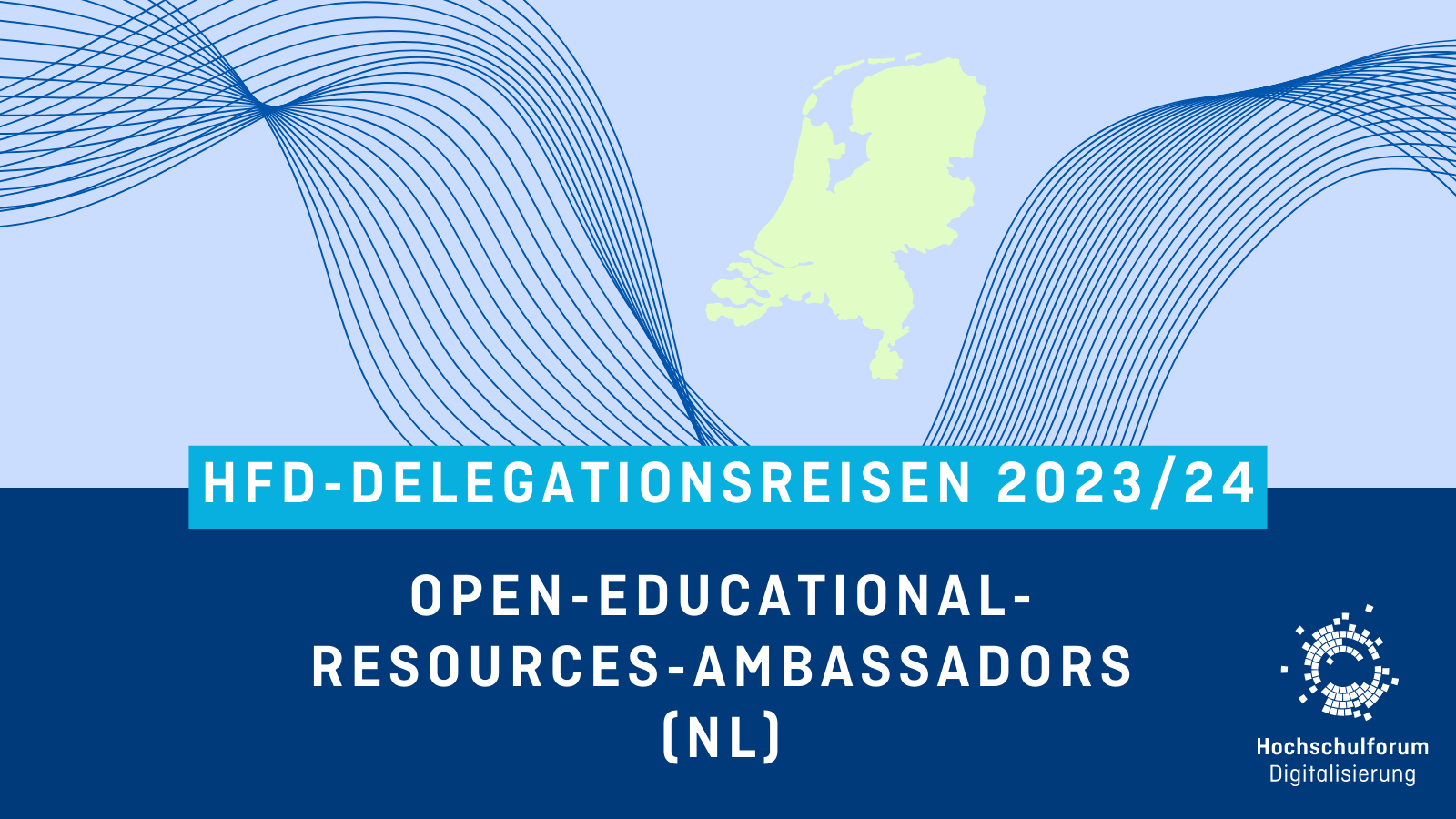Open Educational Resources Ambassadors (NL)

As part of their delegation trip, the team visited Delft University of Technology in the Netherlands, a globally recognized university known for its commitment to open education.
TU Delft presents the Open Education Ambassador Award every year. This award recognizes teachers who are committed to didactic and methodological openness and educational innovation. The close connection with leading teachers is an effective way to promote the culture of sharing and strengthen digital teaching.
The visit to Delft offered the team the opportunity to gather valuable information and inspiration to establish a possible nationwide OER award in Germany and promoted strategic exchange within the framework of the KNOER cooperation network and the Hochschulforum Digitalisierung.
In the following, Markus Deimann and Paulina Rinne take stock of the trip to TU Delft and formulate some recommendations that they believe are relevant for the German higher education community and German higher education policy. They are based on the following fundamental thesis.
University teaching faces a variety of major challenges (for examples and a summary, see the Recommendations of the German Council of Science and Humanities for a sustainable organization of studies and teaching). Essentially, the aim is to permanently improve the quality of teaching and study conditions. Open Education can become an effective instrument here by
- the appreciation and reputation of teaching is enhanced compared to research. To this end, an index similar to the Citation Index in science can be created that measures the frequency of use of OER and provides teachers with a high OER Index in a more advantageous position in application and appointment procedures.
- a Germany-wide Open Education Award for university lecturers which recognizes individual dedication and commitment to opening up education as an effective means of achieving greater equality of opportunity.
- The commitment of a university to Open Education (and Open Science) is reflected in the indicatorsthat are important for university rankings or the allocation of financial resources (e.g. number of OER offered, number of OER reused).
- Open teaching and learning materials the normal state The OER platform is a key element in the provision of teaching materials and allows teachers and students alike to benefit from the freedoms (e.g. to modify and disseminate) that OER offers. Teaching and learning materials can thus circulate more easily via learning management systems and be better adapted to individual needs. The resulting diversity increases the chance that students will find the content that suits them and are not dependent on a small selection of textbooks, some of which they have to pay for.
- flexible and demand-oriented study opportunities can be created on the basis of OER. These offers can be made by means of Micro-credentials The universities can be certified and thus create reputational gains for the universities by participating in a growing global education market. As in the study commissioned for the HRK in 2023 “Microcredentials at university level. Approaches to dealing with an educational policy trend”argues, the design of digital offerings requires considerable effort, which can, however, be reduced by using OER materials. This effect can be achieved through cross-university collaboration, such as in North Rhine-Westphalia in the creation of OERContent.nrw, even further.
Open Education also contributes to this, strengthen universities in times of multiple crises in their educational mission and to safeguard democracy in society:
- By providing open access to teaching and learning materials and to the latest research findings, universities assume responsibility as educational institutions that are open to all people in principle and create important conditions for the upcoming social and technological innovations in society. By presenting a constantly growing pool of diverse materials, OER and open access portals can raise awareness of teaching and science and demonstrate how much innovative power universities have.
- By offering open courses and more opportunities for participation, universities can respond better to the expectations and needs of society. Particularly in connection with the digital transformation or the recruitment of skilled workers, new, more permeable and generally more open offers are needed than before.
